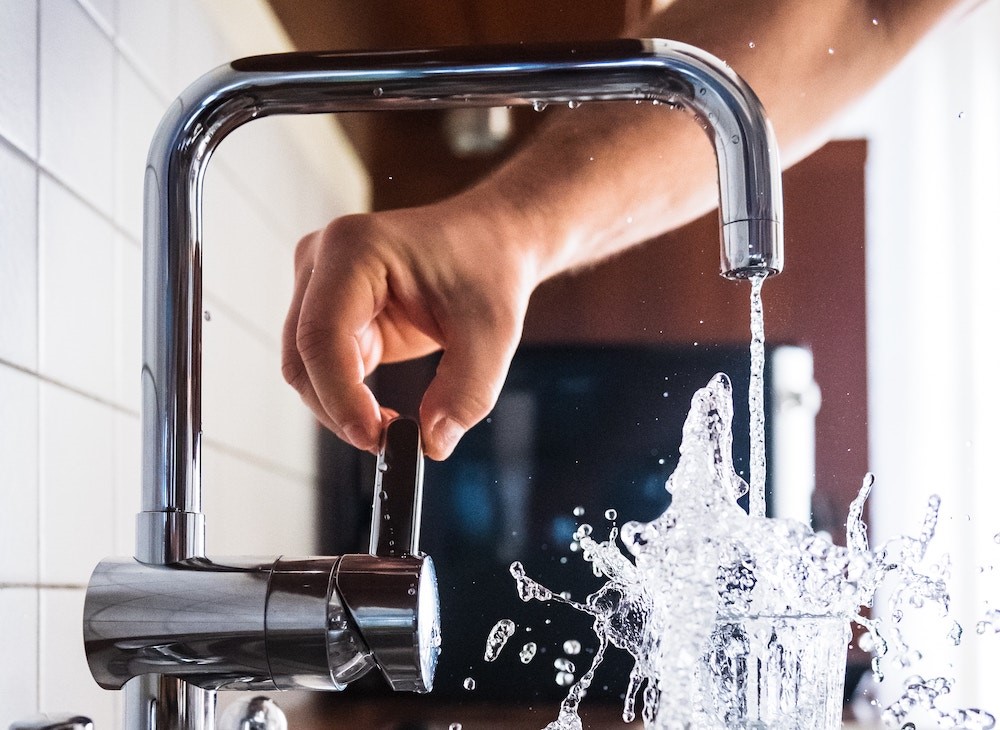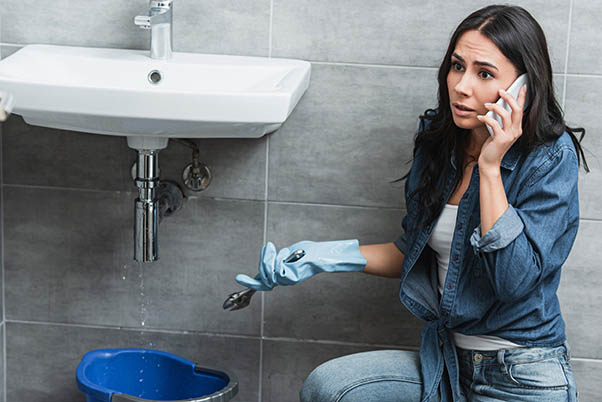Quick Solutions for Emergencies: Actions to Take Until Help Arrives
Quick Solutions for Emergencies: Actions to Take Until Help Arrives
Blog Article
The article down the page relating to What to Do During a Plumbing Emergency is particularly insightful. Don't miss it.

Pipes emergency situations can strike at any moment, causing stress and anxiety and possible damage to your home. Whether it's a burst pipeline, a clogged up drain, or a leaky faucet, recognizing how to take care of the circumstance up until a specialist plumbing technician arrives can save you from further difficulties. This short article gives crucial emergency situation plumbing suggestions to help you mitigate damages and restore control during a pipes situation.
Switch off the Water System
The very first step in any plumbing emergency is to shut off the water. For local problems, such as a leaking faucet or bathroom, shut off the valve near the component. In the case of a major leak or burst pipe, situate your home's major water shut-off shutoff and transform it off immediately. Knowing the location of these valves in advance can conserve valuable time during an emergency.
Address Little Leakages with Short-lived Fixes
Little leaks can promptly end up being substantial issues if left uncontrolled. Utilize these temporary fixes till professional assistance gets here:
While these solutions aren't long-term, they can assist reduce water loss and damages.
Unclog Drains Pipes Safely
A clogged drainpipe can be a discouraging and messy concern. Below's just how to tackle it:
If these methods don't work, stay clear of utilizing excessive pressure, as it may worsen the clog.
Handle Overflowing Toilets
An overflowing bathroom can create instant mayhem. Here's what you need to do:
Shut down Your Hot Water Heater
In specific emergencies, such as a burst pipe, it's important to shut down your hot water heater. This protects against overheating or damage to the unit when water quits flowing. Turn off the power supply to the hot water heater (electric or gas) and allow it cool off to prevent potential threats.
Momentarily Stop a Burst Pipeline
A ruptured pipe can result in significant water damages in minutes. To minimize the problem:
Call a specialist plumbing technician quickly to address the problem permanently.
Manage Frozen Water Lines Meticulously
In chillier environments, icy pipes are a common emergency. If you believe a frozen pipe:
Avoid Additional Damages
Taking fast action to reduce damage can conserve you money and time in the long run. Here's how:
. Have an Emergency Plumbing Set
Prepare a basic plumbing emergency situation package to manage small problems efficiently. Your kit should consist of:
Having these devices handy can make a considerable distinction in your capacity to handle emergencies.
Know When to Call a Professional.
While quick fixes can aid briefly, specific plumbing concerns need immediate professional focus. Call a plumbing professional if:.
Immediately contacting a specialist guarantees the issue is settled properly and avoids more issues.
Final thought.
Pipes emergency situations can be overwhelming, yet with the ideal understanding and tools, you can take care of the circumstance effectively till assistance arrives. By switching off the water system, dealing with small leakages, and using short-lived repairs, you can reduce damages and keep your home safe. Keep in mind, these tips are short-lived services; always seek advice from a certified plumbing professional to manage the root cause of the issue. Preparation and fast reasoning are your best allies in any kind of plumbing emergency situation.
8 Helpful Tips for Managing Plumbing Emergencies at Home
If your plumbing system hasn’t failed once, wait for it because almost everyone has a story to tell. Sometimes, it could be simple emergencies such as a leaking pipe, a blocked cistern, or even a big burst pipe. In situations like this, you need to have some handy tips to save you some money and from possible damages.
Take care of minor issues early.
Sometimes, you could have avoided an emergency by taking proactive measures while it was still early. Some major plumbing emergencies can be a result of an ignored minor issue. We recommend that you have items like plumbing tapes and other related items. A plumbing tape can allow you to manage minor leaks before the plumber arrives.
Cut off the water supply.
This tip is essential in almost any type of leakage problem. For problems like minor leakages in the toilet or kitchen, turn off the supply that takes water to the affected pipes. If the leakage is a major pipe, you must shut off the supply valve to the entire building. This will help you avoid flooding your home and neighbors if you share a flat.
Know your plumbing system
Folks typically move into a new apartment without understanding the water supply around the building. This can prove disastrous if a water emergency arises and the plumber is far away. The previous tip will prove useless if you don’t practice this one. More importantly, know where your water shut-off valve is located – you’ll need that knowledge to prevent potential home floods.
Have some common handy tools
There are lots of plumbing emergencies that you can handle without hiring a plumber. That’s why you must keep some tools available always. Some tools that you can use to fix simple plumbing emergencies easily include plumbing tapes, screwdrivers, thread seal tapes, plungers, pliers, tape measures, and rubber gloves.
Insulate your pipes from cold
You’ll save yourself from many plumbing expenses if you protect your water pipes from the cold. This is because of the harmful effects that cold weather can have on your pipes. During winter, your pipes can burst from being overly expected to freezing temperatures. So, make sure insulators are there to keep the pipes working correctly.
Avoid practices that will clog your toilet.
Many people indulge in practices that can damage the plumbing system of the entire building. One of these is when they use their toilet to dispose-off garbage. They flush all kinds of things, such as paper towels, bandages, hairs, female sanitary products, etc., down the toilet. This will block your toilet in the long run, incurring unnecessary expenditures. Dump such waste in the trash instead.
Check your dials regularly.
Sometimes, there could be leakages in your home without noticing them in time. So, constantly monitor your water meter dial. If the dial is reading when there is nobody using water, this is an indicator that there is leaking. Check for leaks immediately. Call a plumber as soon as possible if you can’t find any.
https://www.constructionplacements.com/8-helpful-tips-for-managing-plumbing-emergencies-at-home/

Do you like reading about What to Do While Waiting for an Emergency Plumber? Post feedback down below. We'd be glad to see your opinion about this content. In hopes that you visit us again in the near future. For those who enjoyed our post kindly remember to share it. I take joy in your readership.
Detail Report this page